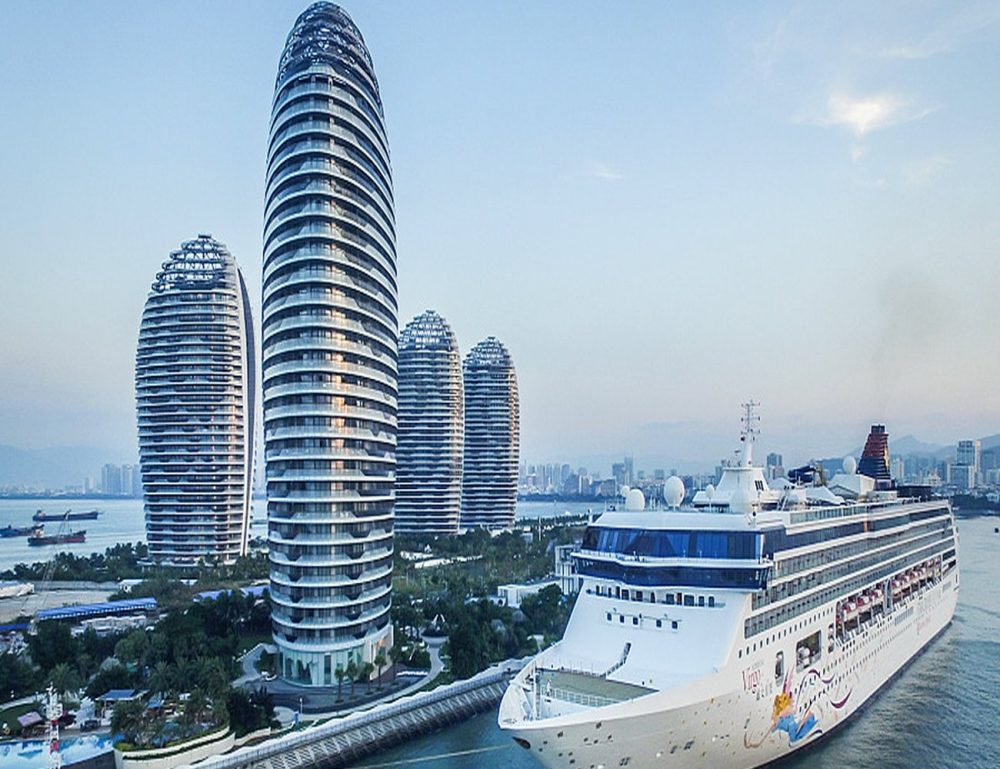Hainan offers an excellent entry point for foreign firms looking to expand into Mainland China. A Western firm should consider investing in Hainan over other Chinese provinces for several compelling reasons that align with its unique positioning as China’s premier Free Trade Port (FTP). Hainan presents a rare combination of reduced operational risks—through favorable tax policies, lower costs, and government support—and high-reward potential through access to rapidly growing sectors and strategic positioning in the Asia-Pacific region. For Western companies looking to establish a presence in China with reduced financial and regulatory risk, Hainan provides the ideal gateway.
1. Strategic Geographic Position
Hainan’s location positions it as a gateway between China and Southeast Asia, offering access to both markets. Its role in China’s Belt and Road Initiative (BRI) strengthens its trade links with ASEAN countries, giving Western businesses an opportunity to leverage Hainan as a base for broader regional expansion
2. Favorable Tax Policies
Hainan’s tax regime is highly advantageous for businesses. The Corporate Income Tax (CIT) rate is set at 15% for encouraged industries, expanding to all sectors post-2025 except those on the negative list. Moreover, foreign-sourced dividends through Hainan entities are exempt from CIT, providing significant tax relief for multinational corporations. The Individual Income Tax (IIT) is also capped at 15%, further incentivizing top talent and expatriates to work and reside in the province.
3. Government Support and Stability
Hainan has strong backing from China’s central government, which ensures stability and long-term development. Over 150 policies have been introduced to support the FTP’s growth, including deregulation, infrastructure investment, and foreign investment facilitation.This high level of government support provides a secure environment for businesses concerned about geopolitical risks or regulatory changes.
4. Favorable Regulatory Environment
Hainan’s Free Trade Port (FTP) designation offers a more flexible regulatory environment compared to other Chinese provinces. The negative lists for services trade and zero-tariff policies on key imports reduce the regulatory hurdles that businesses often face in other parts of China. This simplifies market entry and allows foreign firms to establish operations without encountering the usual bureaucratic delays
5. Duty-Free and Simplified Customs
Hainan’s duty-free policies and streamlined customs procedures mean lower costs for importing goods and raw materials. This creates a safer entry point for companies testing their products in China without incurring substantial tariffs or facing the delays that often accompany international shipping to other provinces
6. Access to the Mainland Market
While operating in Hainan, companies can still access the broader Chinese market through lower export duties and ease of market entry for mainland cities. Hainan provides a stepping-stone into Mainland China, offering businesses a testing ground before scaling up to other provinces, particularly for sectors like healthcare and technology
7. Targeted Growth Sectors
Hainan is focusing on high-tech, modern services, healthcare, tourism, and renewable energy industries, all of which are rapidly growing in China and globally. Western companies in these fields can benefit from sector-specific incentives and government support, accelerating their growth in China’s vast market
8. Low Operating Costs
Compared to China’s major cities like Beijing or Shanghai, Hainan offers significantly lower operational costs, particularly in terms of real estate and labor. This means businesses can establish a presence without the heavy capital expenditure required in first-tier cities, reducing the financial risk involved in entering the market
9. Expanding Consumer and Tourism Markets
Hainan is a major tourism hub, drawing millions of domestic and international tourists each year. With the growth of duty-free retail and expanding infrastructure, businesses in the consumer goods, luxury, and retail sectors stand to gain from increased exposure and sales. The island-wide duty-free policy is also set to further boost consumer spending
10 . Comprehensive Infrastructure and Modern Services
Hainan is rapidly advancing its infrastructure to support both domestic and international business operations. The development of modern services, logistics hubs, and technology parks creates an ideal environment for companies looking to establish or expand their operations in China. The province is also emphasizing the development of a world-class business environment with a focus on international standards, making it easier for Western companies to navigate local regulations.
11. Commitment to Global Standards and Governance
Hainan adheres to international standards in taxation and governance, following OECD and BEPS principles to avoid becoming a tax haven. This ensures that investments are secure and operate within globally recognized frameworks, offering businesses peace of mind.
12. Long-Term Vision and Stability
The Hainan Free Trade Port Master Plan is designed with a long-term growth trajectory, with milestones set through 2035 and beyond. This ensures that foreign companies will continue to benefit from a stable, predictable environment that prioritizes foreign investment and business development





